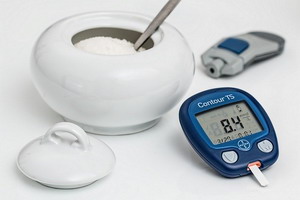
One of the more common symptoms patients mention when they come in for a visit is dizziness or lightheadedness. What is amazing is how many things can cause this seemingly simple little symptom. What brought it to mind was a patient report that mentioned a specific type of lightheadedness that results in passing out called syncope. I decided to look syncope up in my Text Book of Medicine, one of the two thirty-pound books (along with Boyd’s Pathology) I had to memorize to pass my national boards 40 years ago. It seems 40 years has dulled my memory just a bit, so I occasionally have to bone up on some subjects.

Anyway, the first thing my patients want to know is whether they have a brain tumor. Yes, brain tumors can cause dizziness, and if you suddenly find you can’t speak or one side of your body stops working then that might be a concern. If not then it is more likely caused by some other of the dozen causes for dizziness. Dizziness might be the sensation of wooziness, feeling faint, unsteady, or even suddenly weak. If everything feels like it is spinning or you feel like you are spinning, we upgrade dizziness to vertigo. In any case, it is usually not life-threatening, though you may feel death would be a welcome relief.

The first question I ask is “What triggers this feeling?” Is it when you move your head a certain way? If it is then often we are simply talking about your upper neck being “out” affecting the blood flow to the balance centers in your brainstem. I see this problem almost every day and a little adjustment to the base of the skull relieves it. This is the simplest cause and solution for dizziness. The fancy medical name for this is benign paroxysmal positional vertigo. Sometimes the issue is not the neck in these cases, but the inner ear. There are balance “organs” in the ear called semi-circular canals that have little crystals in them called otoliths. The movement of these little crystals signals your brain about where you are positionally in space relative to gravity. If they become dislodged they will send mixed messages to the brain which sends it spinning. There is a head repositioning “exercise” called Epley’s Maneuver which you can actually do at home to help this. There are many videos of this on youtube such as this one: How to perform the epley maneuver at home for BPPV
Other causes for the spinning type of dizziness called vertigo are viral infections of the inner ear vestibular nerve which produces a constant vertigo, Meniere’s disease which produces fluid pressure in the inner ear, and some people get vertigo with their migraine headaches. A big clue here is that these spinning episodes last much longer than the type that happen with neck issues.

Another favorite cause for dizziness is when you go from a lying position to an upright position and you get dizzy for a few moments. This is caused by a lack of blood flow to the brain due to the heart not pumping harder to push blood uphill quickly enough. I see this one all the time as well. The underlying cause for this one is chronic stress fatiguing the adrenal glands. The most common type of chronic stress that causes this is eating too much sugar. Too much sugar unbalances your blood sugar mechanism so that you get frequent bouts of low blood sugar. To combat this your adrenals spurt out a shot of adrenaline to mobilize sugar from storage in the muscles to bring up your blood sugar levels. This type of sugar handling problem is early on in the blood sugar system degeneration, as later on you develop the opposite problem and end up with high blood sugar due to insulin resistance and diabetes type 2. Anyway, chronically over stimulating the adrenals depletes them and they don’t have the juice needed to rev up the heart to compensate for simply sitting up from a lying down position. That means there is not enough blood to keep your brain balance nerves working properly. You might even notice momentary greying of tunneling of your vision as the lack of blood affects your vision centers as well.

Correcting this condition (also known as adrenal orthostatic hypotension or Ragland’s sign) is about decreasing stress on the adrenals. That might be decreasing life stress or it might be correcting a sugar consumption problem with the sugar protocol I use in the office. Be aware that orthostatic hypotension induced dizziness can also be the side effect of many drugs like antidepressants (MAO’s), heart alpha-blockers, anti-seizure meds, sedatives and tranquilizers, THC, and anything that produces dehydration like alcohol, excess sweating during sports, or simply not drinking enough good old water. If life stress is the cause, then this is a big red flag that you have already started to crash.

On occasion I find that this condition comes and goes easily even after sugar and stress are eliminated. Since this is about getting oxygen to the brain, we have to get really down to basics and check to see if there is any type of anemia present. If your blood is not strong, then your brain can not function normally no matter what you do. Always check the basics. Along those same lines, if you have problems getting enough air into your lungs, then obviously you will not have enough oxygen getting to your brain. Asthma is an obvious issue here, but another common issue is anxiety. With anxiety your diaphragm likes to lock up to stabilize your core so you can run or fight. But if you don’t run or fight (which forces you to breathe heavily to compensate) that tight diaphragm does not pull air down into the lower half of your lungs and you end up hypoventilating. That means you don’t breathe enough. Anxiety without movement is part of the freeze response to fear. In freeze mode you literally try not to breathe. As you might suspect, this does not work well for your health. You brain needs you to breathe all the way down to your navel, not just in your upper chest. This is one of the core reasons that fear makes people stupid – they don’t breathe enough to feed their brain with the oxygen it needs.
Okay, now for the scary causes of dizziness:
stroke
brain tumors

Parkinson’s and MS
brain inflammation/glial cell activation

These probably account for less than 1% of all dizziness cases, but they are there. As I mentioned before the most notable symptom is how the dizziness is constant to some degree with these causes. These issues don’t come and go – once they are there, they stay.
So when you have dizziness, when is it important to seek immediate medical attention?
If you faint and can’t walk
If you are having chest pains/ irregular heartbeat
If you have had a head injury
When you have a high fever
If you have a really stiff neck
If you have shortness of breath
If it makes you vomit
If your face goes numb
If you get weakness in the leg or arm
If your vision, hearing, or speech go wonky
I would say that in my experience three out of four cases of dizziness I see are related to either neck issues or adrenal/blood sugar/stress issues. A chunk of others are due to side effects of meds patients are on. A few are due to anemia and dehydration. On occasion I see actual ear infections, stroke, Parkinson’s and MS as causes. And increasingly I am seeing more and more brain inflammation cases being caused by leaky gut as the first start of the cause. Interestingly, though, I have seen a number of real brain tumors in patients, but none of them had dizziness as a symptom. So there you are … what I know about your dizziness.
Take care,
David
